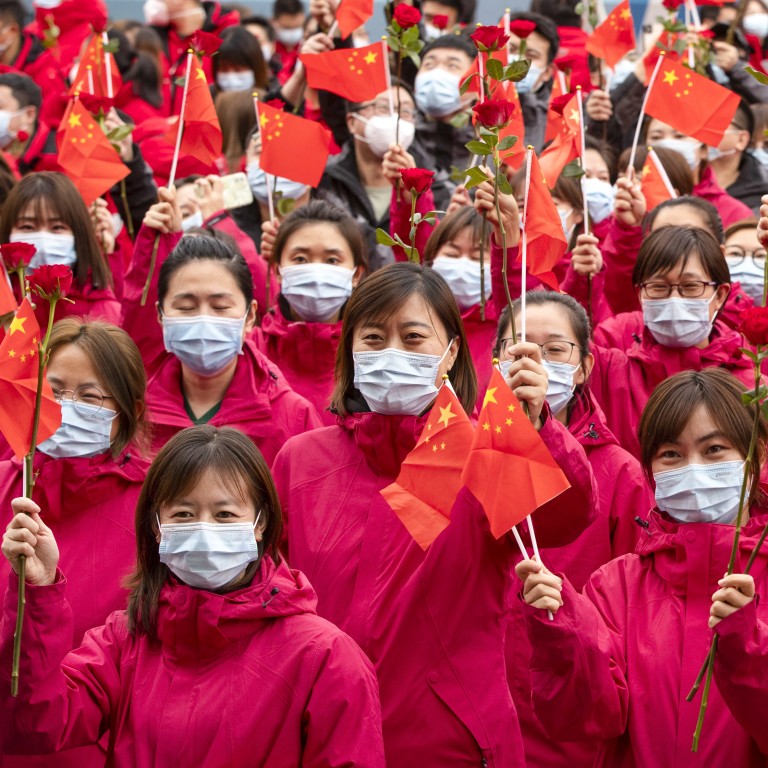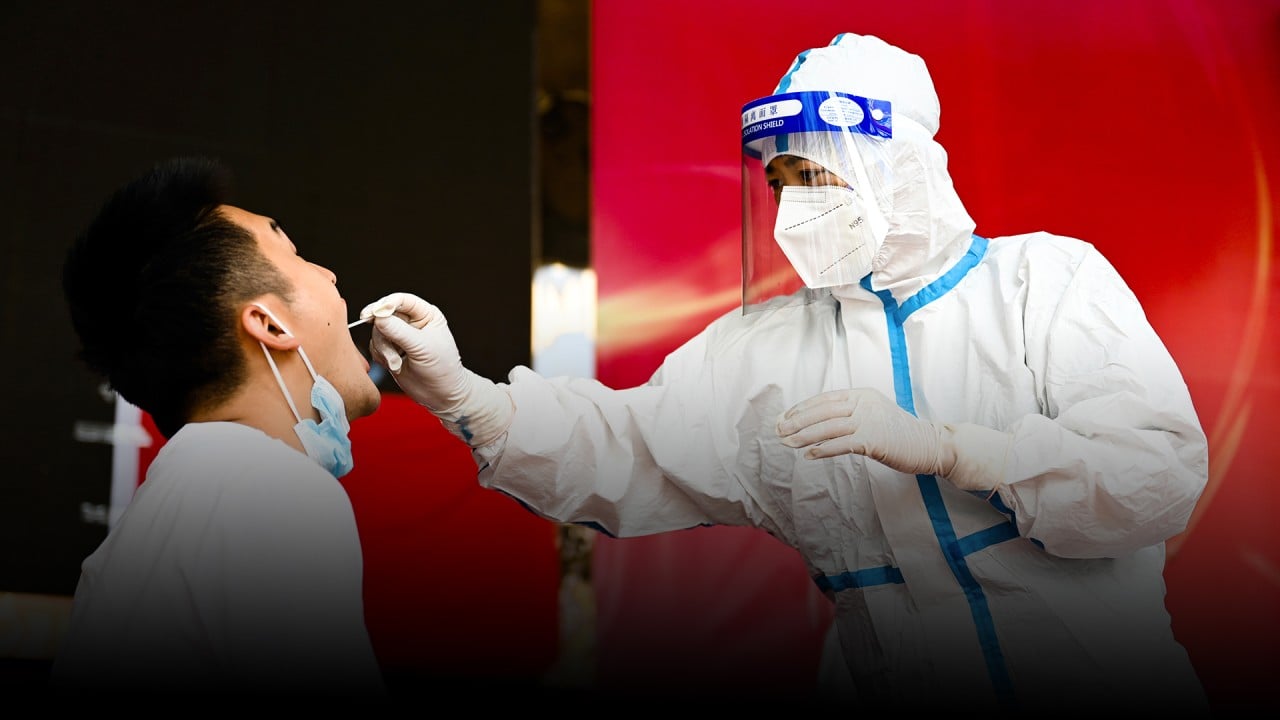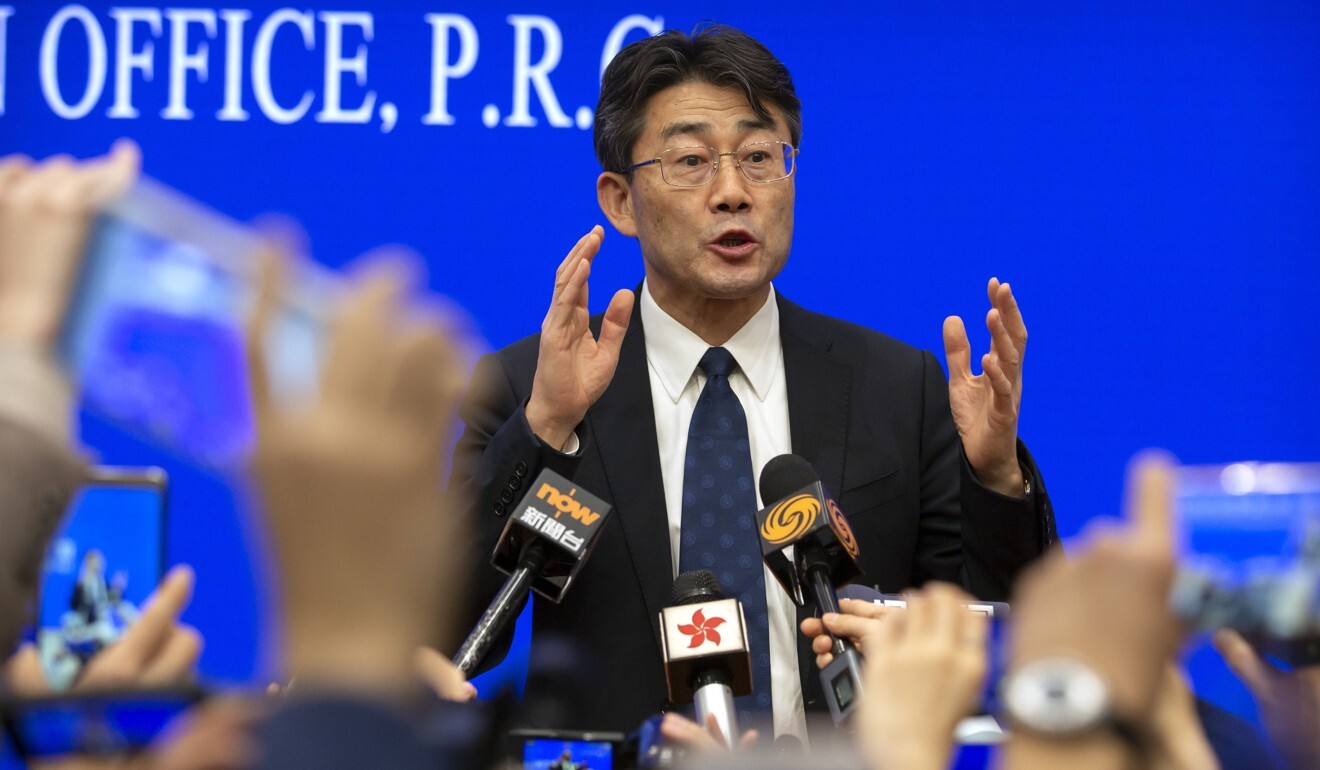
Coronavirus: Other countries are giving up ‘Covid zero’. China wants to wait and see
- Chinese CDC chief Gao Fu says new strategy is being discussed and ‘everything is dynamic’ but it’s too soon to view the disease as endemic
- His remarks come as other nations like New Zealand and Australia are moving away from a zero-tolerance approach
“We are discussing about the new strategy in China … everything is dynamic,” said Gao, noting that health authorities had already adjusted national protocols multiple times and were “ready for any possible reassessment”.

06:05
As more countries ditch ‘zero-Covid’ policy, why is China opting to ‘wait and see’?
However, moving to consider Covid-19 an “endemic” disease that was here to stay would take a major switch, said Gao, speaking at a virtual ministerial conference for Asean Digital Public Health, hosted by health care group EVYD Knowledge Hub in Brunei.
“We are not ready yet to claim Covid-19 as endemic, because at the moment it’s still pandemic. At the moment, it still causes very high fatalities, and psychologically our public are not ready,” he said, referring to the global situation.
But other countries that have also sought to block the virus and have lower vaccination rates have been reassessing their policies.
“This is a change in approach we were always going to make over time. Our Delta outbreak has accelerated this transition. Vaccines will support it,” Prime Minister Jacinda Ardern said on Monday.
Online vigilantes name and shame China’s Covid-19 patients
Vietnam has moved to coexist with the virus in a policy shift announced last month, while Thailand is preparing to loosen travel controls for foreign visitors.
Singapore has also sought to transition to a “living with the virus” strategy, but a recent spike in cases after some relaxation has prompted the city state to temporarily pause further reopening.

The announcements mark a major shift for a part of the world that had largely maintained tight control over the virus, with a number of Asia-Pacific governments taking more stringent or longer-term approaches to lockdown and border restrictions than elsewhere.
In China, short-term lockdowns are typically enacted in hotspots when cases are discovered, but domestic travel and other day-to-day activities have been largely unaffected by the pandemic due to border controls.
The roughly 20 per cent of people who remain unvaccinated, the potential for new emerging variants, and waning immunity are all concerns for Beijing, according to Kwok Kin-on, an assistant professor at Chinese University of Hong Kong’s JC School of Public Health and Primary Care.
These concerns are compounded by the upcoming Winter Olympics in Beijing in February, with the risk that athletes from around the world could bring in cases, he said.
Is China’s top doctor signalling a shift away from zero Covid-19 policy?
Alfred Wu, an associate professor at the National University of Singapore’s Lee Kuan Yew School of Public Policy, also pointed to the looming Games, as well as next year’s crucial Communist Party congress, as factors for Beijing.
“China’s situation is beyond medical considerations,” said Wu, adding that Beijing had also won public support for its tough policy to contain the pandemic.
But others say that China will eventually need to transition to another phase of virus control, as Covid-19 does not appear to be going away any time soon.
That may include some adjustments to restrictions depending on the impact of the highly transmissible Delta variant or other future strains, according to Kwok.
“After Delta became the dominant variant, in theory we can’t take a zero-tolerance policy any more, so living with the virus appears as the most realistic approach,” he said.
“[China] will allow some level of infection, but they will keep an eye on the number of cases and the proportion of hospitalisations,” he said, noting that challenges to the hospital system could mean “immediate action with lockdowns, contact tracing and closing the border”.
But risks remain for China the longer it continues to keep borders closed, according to Nicholas Thomas, health security expert and associate professor at City University of Hong Kong.
“If China continues to prioritise eradication without a new vaccine campaign that relies on more effective vaccines, then it shuts itself off from global trade and travel,” he said.
“Although the size of the domestic Chinese market is large and growing rapidly, China runs the risk of shutting out much needed capital and – over time – seeing global supply chains redirected to economies that have incorporated viral risk into their daily practices.”

